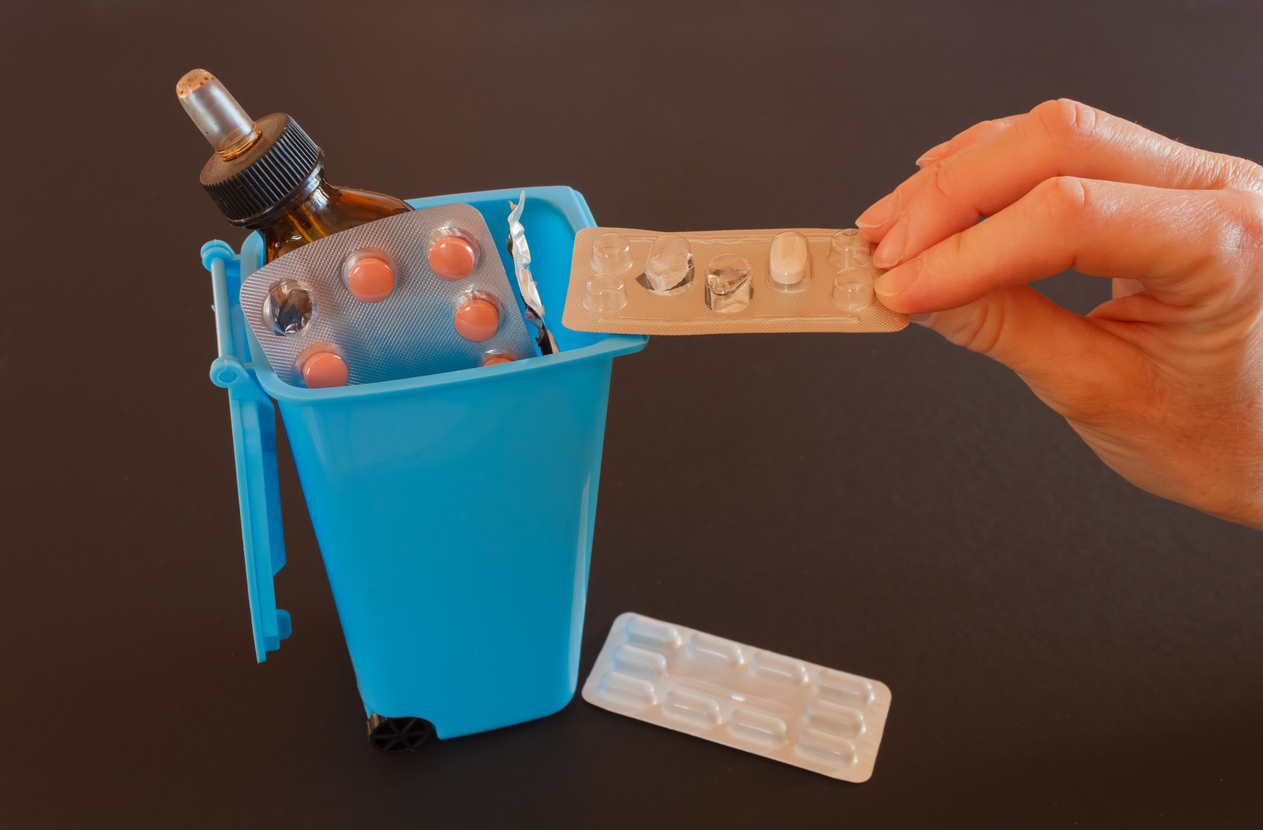Living with Chronic Pain
How to Properly Dispose of Medications in Canada

Unused and expired medications that are left in the home present a danger to children, teens, elderly, pets, etc. They increase the likelihood of medication error, drug misuse, accidental poisoning, and drug interactions. Keeping the home, community, water and soil safe requires proper disposal of medications, vitamins, supplements, medical sharps, syringes, and other supplies.
Flushing is unsafe
Disposing of medications by flushing them down the toilet is a common practice; however, it is not recommended in Canada. Wastewater treatment plants cannot remove the medications before water is returned to the environment, which causes many harmful effects. For example, birth control hormones can disrupt fish reproduction and antidepressants may alter behavior in fish.
How to safely dispose
When disposing of medications, vitamins and supplements, the pills should be put into a clear plastic zip-top bag. Bottles should be discarded with personal information removed. Liquids, creams and inhalers should remain in their original packaging.
Proper disposal includes pharmacies, doctor’s offices, take-back programs, and household hazardous waste programs.
Pharmacies
Pharmacies in Canada will take any unused or expired medications, which includes prescription drugs, over-the-counter medicines, or natural health products, on any given day. This ensures that medications are properly disposed of.
Doctor’s office
A doctor or nurse practitioner can determine what medications should be disposed of. They can either dispose of it themselves or provide instructions and directions to a safe disposal location.
Take-back programs
Municipalities or police forces offer take-back programs in certain locations. They provide a safe and easy way for medication disposal. Since these programs are only available in specific areas, pharmacies or municipalities should be contacted for more information.
Household hazardous waste programs
Some municipalities, such as the City of Toronto, operate household hazardous waste programs to divert items that should not go in the garbage, blue box, drain, or sewer. This includes items that are corrosive, flammable, explosive or poisonous. Typically, they also accept health care items, such as medications, vitamins, and medical sharps. Individuals should contact their local municipality for more information.
Garbage, a last resort option
It is best to dispose of medication safety through a pharmacy, doctor’s office, take back program, or local hazardous waste program. However, if a medication cannot be taken to one of these safe disposal locations and must be disposed of immediately, it should be emptied from the original container into a closed bag. A deterrent, such as kitty litter or coffee grounds, should be added to the bag prior to it being thrown in the garbage. Children and pets will find it less appealing, and individuals searching for drugs in the garbage will not be able to recognize it.
Additional sources: City of Toronto and Sunnybrook Health Science Center


















